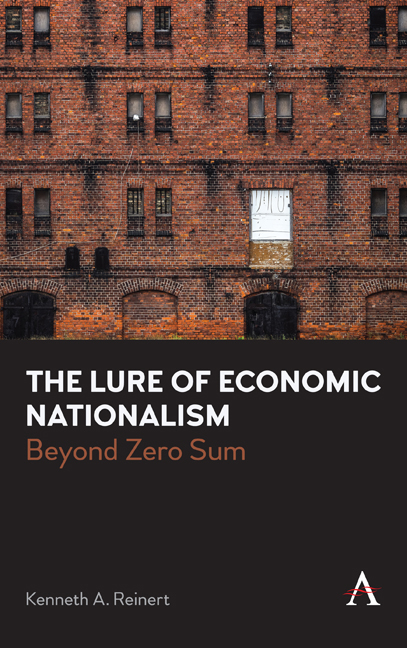Book contents
Preface
Published online by Cambridge University Press: 28 February 2024
Summary
In 2014, I began to write a book entitled No Small Hope about the universal provision of basic goods and services, drawing upon economics, ethics and human rights theory. In the middle of this project, the world began to shift. In 2016, the United Kingdom voted to leave the European Union and Donald Trump was elected president of the United States. Both these developments reflected economic nationalist and ethnonationalist political platforms. In 2018, I presented the No Small Hope book at the World Trade Organization's annual public forum. This was somewhat ironic because President Trump was beginning a full-scale assault on that institution, attempting to hobble the multilateral trading system he loathed.
About a year later, COVID-19 appeared on the global scene, setting off further expressions of economic nationalism, exacerbating an already fraught US–China relationship, and causing 15 million excess deaths worldwide. In the United Kingdom, Boris Johnson was “getting Brexit done,” while Indian prime minister Narendra Modi was ramping up his ethnonationalist Hindutva movement. During 2020 and 2021, the pandemic ravaged the world, fraying economic relations. In January 2021, US president Trump attempted to overthrow the country's electoral process while Brexit came into effect. A little over a year later, Russia invaded Ukraine in another ill-considered nationalist spasm.
Whereas No Small Hope was a statement of what could be, this book is a statement of what is, and it is decidedly less hopeful. The main message is that economic nationalism is often a recipe for worsened economic welfare, strained international relations, enflamed ethnic tensions, global public health setbacks and reduced effective innovation. Behind economic nationalism lies a zero-sum mindset that misapprehends many realities and thereby sets back the important project of human flourishing. This zero-sum mindset, however, is an ever-tempting default that must be overcome for continued forward progress. This book argues that we must resist its lure and recognize the possibility of non-zero-sum outcomes as embedded in the principle of multilateralism. This lesson was painfully learned after World War II and unfortunately needs to be learned again.
Some small fragments of this book were published in editorial form in the US-based The Hill, and I would like to thank The Hill's Daniel Allott for his support in that process.
- Type
- Chapter
- Information
- The Lure of Economic NationalismBeyond Zero Sum, pp. viii - ixPublisher: Anthem PressPrint publication year: 2023

